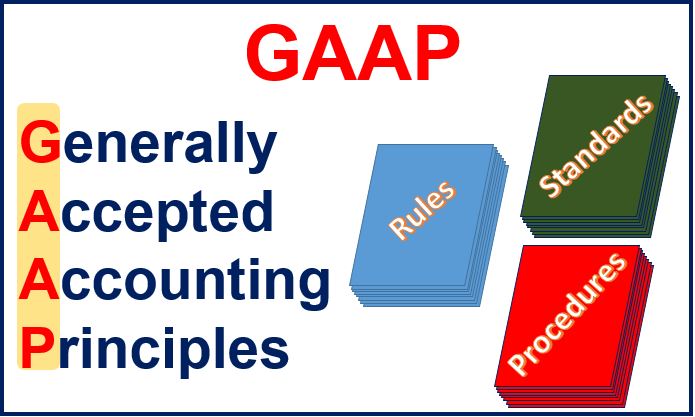Generally Accepted Accounting Principles (GAAP) are the standard instructions for financial accounting – also known as standard accounting practice, or accounting standards. GAAP focuses on the private sector. We call its public-sector equivalent GRAP. GRAP stands for Generally Recognized Accounting Practice.
Generally Accepted Accounting Principles are a series of rules on how we should prepare financial statements. When a company uses GAAP, anybody with basic accounting knowledge should be able to examine its financial state.
GAAP differs slightly from country to country. Many nations adopt the International Financial Reporting Standards to make financial reporting comparable internationally.

Why is GAAP important?
GAAP is important because it allows investors to analyze financial statements without having to deal with consistency issues.
However, even though private sector accountants must adhere to GAAP rules, some can still distort the figures.
Companies often have discretion to use varying methods for valuing assets. They also have some discretion in recognizing costs and revenue. In other words, there is still wiggle room for businesses to ‘fudge’ the figures.
Accountants produce financial statements to provide key information about the financial position of a company. This helps investors make economic decisions. It also reveals how well management has used the firm’s resources.
Financial statements include information about an entity’s assets, liabilities, equity, and income. They also provide data on expenses, gains, losses, and cash flows.
The IFRS (International Financial Reporting Standards) requires faithful representation of the effects of the transaction, presented on a going concern basis. There should be no offsetting.
Companies must present a complete set of financial statements each year.
IFRS financial statements (IAS1.8) consist of the following:
- Statement of Financial Position
- Statement of Comprehensive Income
- Income Statement
- Statement of Comprehensive Income
- Statement of Changes in Equity (SOCE)
- Cash Flow Statement
- Summary of the accounting policies
The U.S. Securities and Exchange Commission (SEC) has said that it will gradually switch from US GAAP to the International Financial Reporting Standards (IFRS). All European Union companies have been required to use IFRS since 2005.
